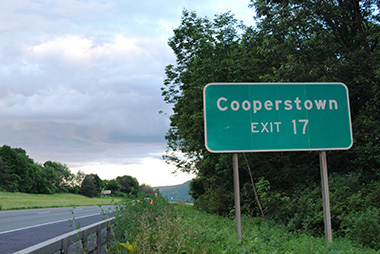 President Trump’s March 4 speech before a joint session of Congress, while technically not a “State of the Union” address, acted like one and set a record as the longest in U.S. history, clocking in at more than one hour and 40 minutes. The previous record of one hour and 28 minutes was held by President Bill Clinton during his 2000 State of the Union address.
President Trump’s March 4 speech before a joint session of Congress, while technically not a “State of the Union” address, acted like one and set a record as the longest in U.S. history, clocking in at more than one hour and 40 minutes. The previous record of one hour and 28 minutes was held by President Bill Clinton during his 2000 State of the Union address.
Length and opposing aisle protests aside, during a recent Convenience Matters podcast, Jeff Lenard and Doug Kantor discussed President Trump’s address and the potential impact that the current administration’s policies could have on the convenience store industry.
Tariffs
Tariffs imposed on foreign goods could have significant implications for the convenience industry. Proposed tariffs on Canada, Mexico, and China, as well as steel and aluminum tariffs, can affect food prices and the cost of aluminum used to manufacture products like beverage cans.
“It's worth noting that with the announcement that tariffs are going to happen, even if they don't ultimately go into effect, it can move the market. We've seen some market swings in response to news and announcements that might end up being false alarms, yet they do impact the price of goods,” said Kantor.
Fuel Demand and Policies
Fuel demand peaked in 2017 and is expected to slightly increase in 2025. On the supply side, the administration's policies favor more oil production and drilling, which are already at record highs, as well as potentially reversing trends toward EV charging infrastructure and fuel efficiency standards for internal combustion engine vehicles.
Business and Labor Policies
The administration is expected to be more business-friendly, possibly reversing the previous Biden administration’s regulations on joint liability and overtime pay. Labor shortages, partly due to increased immigration enforcement, remain a concern for many businesses regardless of channel.
Taxes
This year is crucial for tax policies, with many provisions from the 2017 tax bill expiring in 2025. Key issues include pass-through business taxation and bonus depreciation.
Swipe Fees
Swipe fee reform has strong bipartisan support, with momentum building in favor of changes that would benefit the convenience industry.
“The politics are moving our direction on swipe fees,” said Kantor, adding that there has always been strong bipartisan support for reform of credit card swipe fees. For example, Vice President JD Vance was a co-sponsor of the Credit Card Competition Act in the 118th Congress. “That is helpful, and pairing that with strong Democratic support, it looks like we have some momentum … there's real opportunity on the horizon,” he said.
Elimination of the Penny
President Trump's announcement to eliminate the penny sparked brief media interest, and put convenience stores in the spotlight, but the issue has since quieted down.
“Charlie Hustle”
It wasn’t all NACS and c-stores during the podcast. With baseball’s Opening Day just weeks away, Kantor and Lenard ended by joining one of baseball’s biggest debates: Should Pete Rose be allowed into the Baseball Hall of Fame?
Kantor said that President Trump's proposal to pardon the late Pete Rose is a politically savvy move that taps into the broader national conversation. His personal opinion is that Rose should be in the Hall of Fame despite his off-field issues. Meanwhile, Lenard pointed out that Rose had never been convicted of gambling in court—but was convicted of other crimes unrelated to his ban from baseball, and that led to more discussion.
“He's one of the best baseball players we've ever seen. And frankly, if you take away any off-the-field stuff, this is the model of what you should be in baseball and in life … Learn to give your best effort, learn to try hard all the time, and get the most out of whatever talent you have,” said Kantor.
Listen to more from Lenard and Kantor in the NACS Convenience Matters podcast, “How President Trump’s Priorities Could Affect C-Stores.”